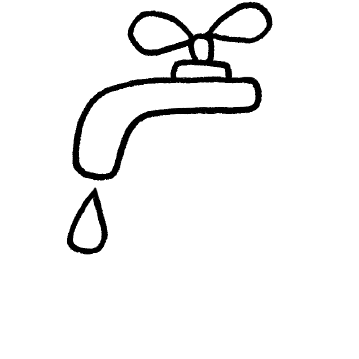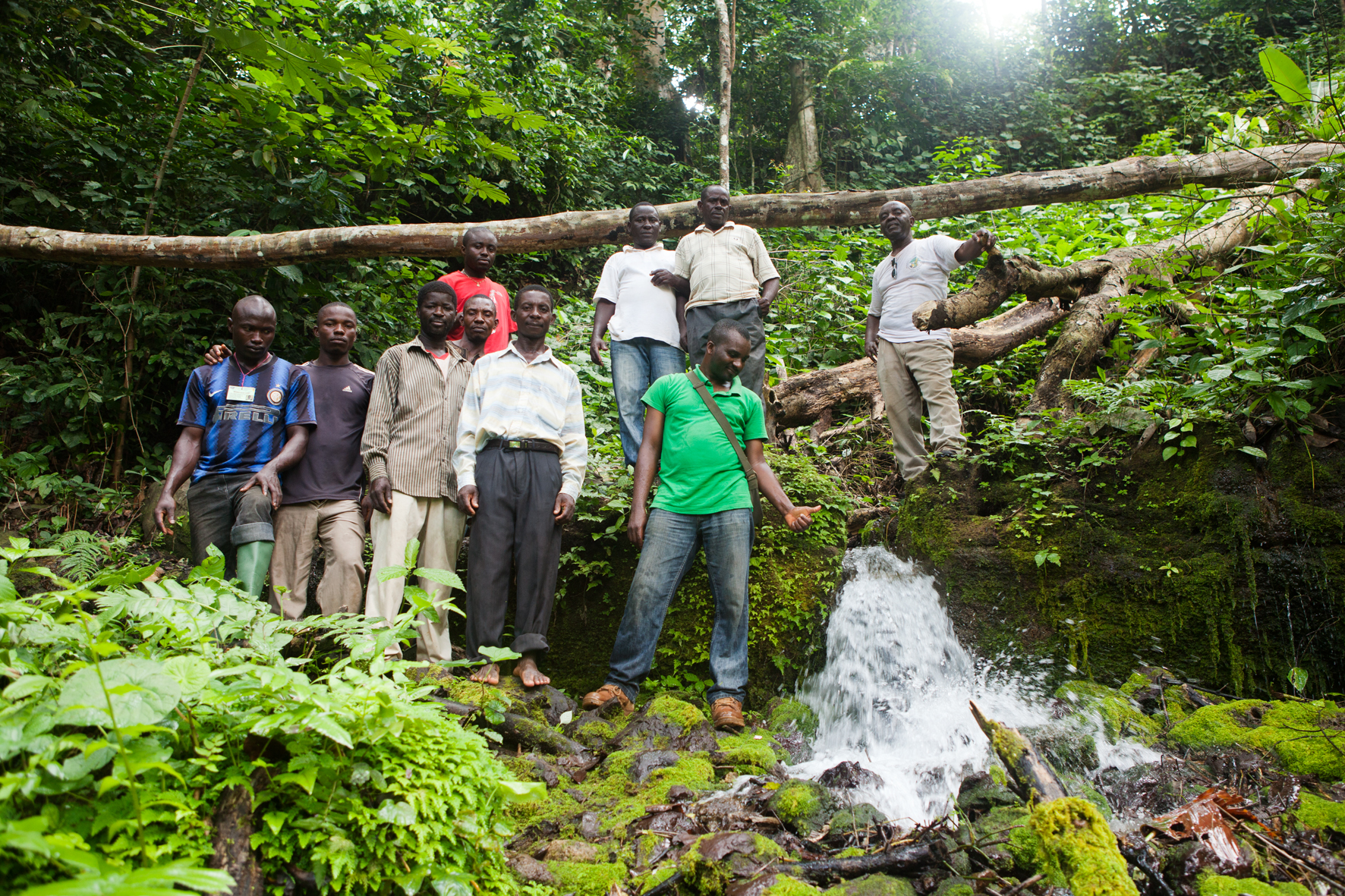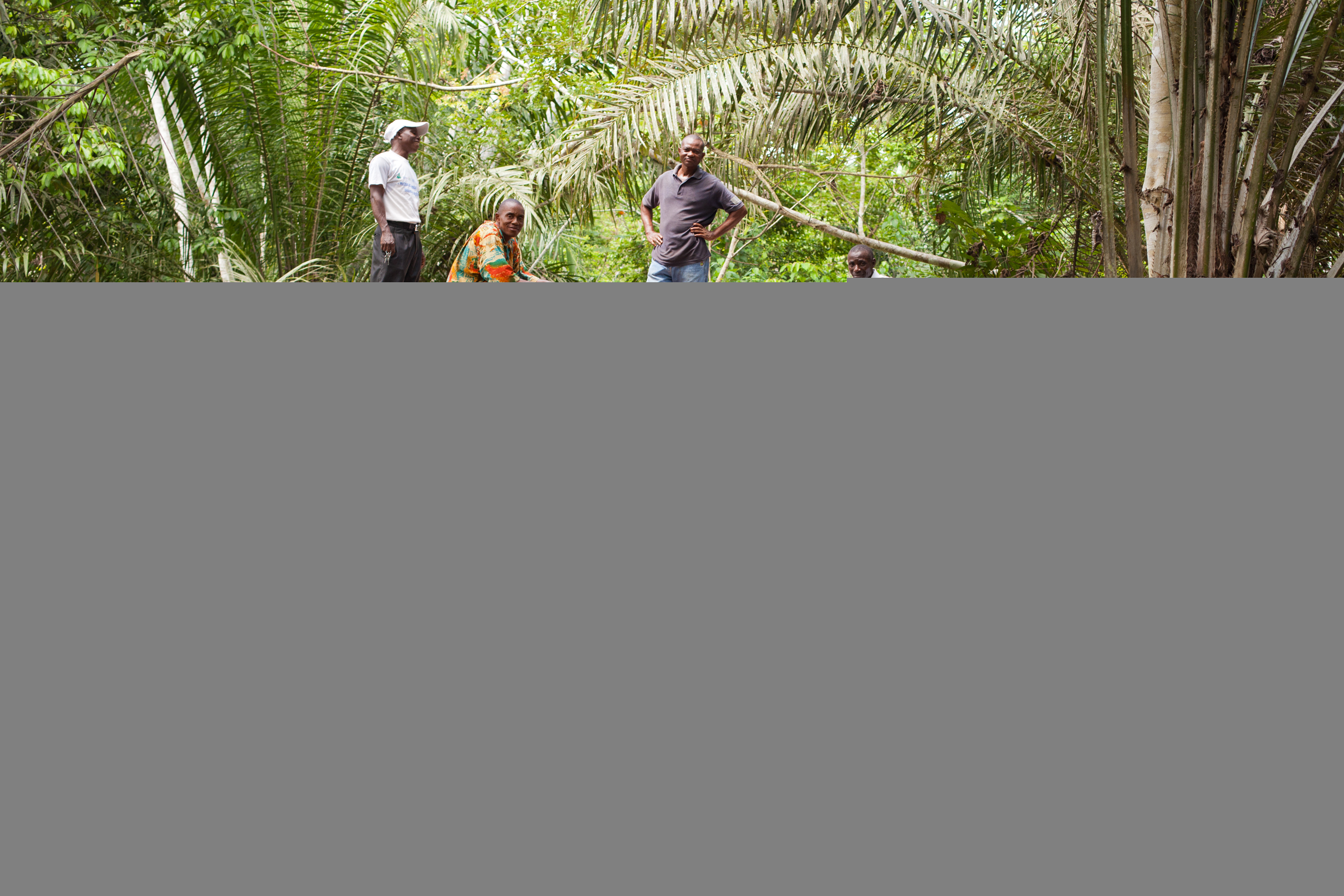Many diseases due to lack of clean water
None of the three villages have a clean source of water suitable for consumption. Only in the rainy season do a few nearby sources provide sufficient water of reasonable quality. In the dry season, the villagers have to walk several kilometres for clean water. Most households choose to dig a hole in their backyard but this water is not drinkable. It is mainly used for cooking and cleaning. Hygiene in the area is extremely poor, partly due to the lack of clean water and good sanitation facilities. The villages have been struck several times by cholera outbreaks, and problems with diarrhoea are very common.
Inspired villagers
Ten years ago, another NGO did place a water system in Nganjo Nene. Unfortunately, this wasn’t done with care and took place without engaging the villagers. Furthermore, the system has never functioned well technically. The villagers, however, have not given up. Under the leadership of the inspirational chairman of the water committee, Daniel Mbong, they have researched new possibilities for a water system. They saved up the money to do a feasibility study and then got in touch with LiveBuild. the desire for clean water is great in this area, which shows at every village meeting that we come to. Each time, hundreds of villagers get together to listen and discuss the possibilities for clean drinking water.
A local water company
The project is currently well underway. The three villages have set up their own water company. The company will receive payment for water from all inhabitants in order to repair the system, and in the longer term, replace the water system altogether when necessary. In this manner, the villages become self-sufficient. In accordance with the feasibility study, experienced local builders are building the water system, which starts from an elevated source about 2 kilometers away. The three villages are being connected to the sources through a series of tanks and pipelines. After many preparations in the communities of Manganjo and in the office of the project manager in Buea, the project started in September 2016.
Along the way
Together with the project manager Eyole Lambe and Jaba Wose a project committee was started. Consisting from 5 persons of Nganjo Nenen and one from each of the other two Manganjo villages. The pipes for the water system have gotten to the village and the piping in Manjonji is already finished! In Nganjo the second phase of the project will start soon. During the meetings that with a few notables of Nganjo Nene. Everyone was quite receptive to the project. This has given us great encouragement. But there is still a lot of work to do! We will work closely with the village and their council to facilitate our activities.
We place a lot of focus on the capacity building of the water committee and local executers so that the result is a solid, sustainable water network. The villages also work with expert to achieve optimal hygiene and good sanitary facilities.
(Nederlands) Herbebossing
(Nederlands) Daarnaast werken Eyole Lambe en Jaba Wose in Manganjo met de dorpen aan een herbebossingsproject.
Doel is duizenden bomen te planten in een gebied rondom de prachtige waterbron. Hiermee slaan de dorpen twee vliegen in een klap: ze herstellen de biodiversiteit (wat goed is voor de natuur en henzelf) en ze stellen hun toekomstige drinkwater veilig.
Om het gebied te kunnen herbebossen zijn inmiddels in goed overleg 11 boeren uit het gebied verplaatst. Ook hebben de dorpen een boom kwekerij aangelegd. Met zaden vanuit nabijgelegen primair regenwoud worden hier inheemse bomen opgekweekt die straks geplant kunnen worden.
Made possible by
Turing Foundation
Jonge Honden
Haella Foundation
Johanna Donk-Grote Stichting











